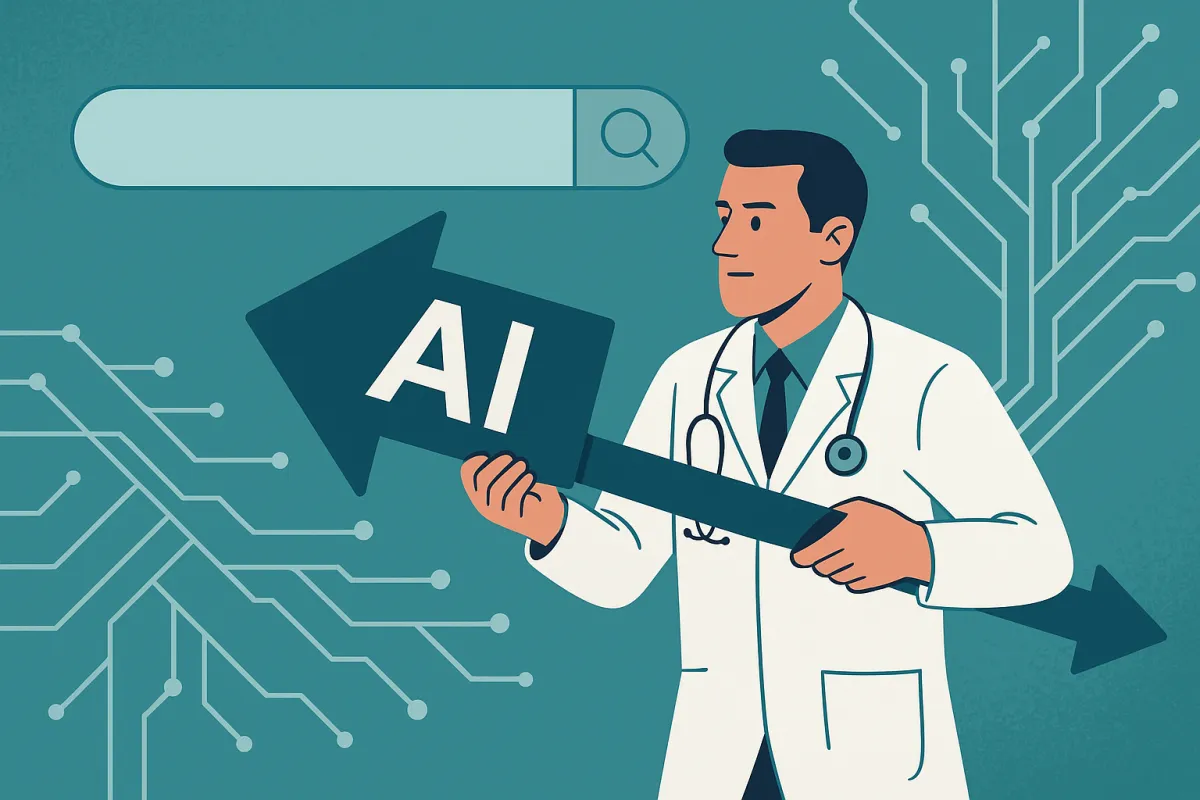
🚨 The AI Shake-Up That's Rewriting the Rules of SEO for Lab & Diagnostic Test Companies
If your lab and diagnostic center relies on Google to bring in business, this is your wake-up call.
AI is changing how people find and choose lab tests online—and if you’re still doing SEO the old way, you’re going to be left behind.
This isn’t just a tweak in search behavior. It’s a full-blown revolution. And for Lab & Diagnostic Test sellers—especially those relying on online traffic for bookings, education, and trust—what worked yesterday won’t work tomorrow.
In this guide, we’ll walk through what’s changing, what it means for your business, and what you need to do now to stay competitive (and visible).

📉 Old SEO Playbook: What Labs Used to Do
For years, labs got found on Google by:
Writing content around common searches like “What’s a CBC test?” or “Blood test near me.”
Creating service pages that explained what tests they offered and where.
Optimizing for local SEO so they’d show up when someone Googled nearby options.
Keeping sites fast, mobile-friendly, and organized.
Getting backlinks from trusted health sites.
Making it easy to book a test or contact someone.
All solid strategies. Until now.

🤖 What’s Changing? AI Is Replacing Search as We Know It
There are two major shifts labs need to understand:
1. Google’s AI Overviews Are Stealing Your Clicks
When someone Googles “How do I prep for a cholesterol test?” they might not see your site anymore. Instead, they’ll see a Google-generated summary (an “AI Overview”) right at the top of the page—no click needed.
📉 In one study, non-branded search traffic dropped nearly 20% because of this. Lower rankings? Even worse—27% drop.
2. AI Assistants Are Browsing for Your Customers
AI bots like Google’s Project Mariner and OpenAI’s Operator can now browse websites, fill out forms, and book appointments like humans. This means your “customer” might be a bot acting on someone’s behalf.
🧠 These bots choose websites based on:
Speed
Structure
How easy it is to interact with forms or buttons
If your site’s hard to navigate, slow, or blocks bots? You’re invisible.

📲 It's Not Just About Google Anymore
People—and AI—are looking for health info everywhere:
YouTube videos on “what to expect from a thyroid test”
Reddit threads on “is Walk-In Lab legit?”
Facebook group recommendations
LinkedIn for B2B test partnerships
This is called Search Everything Optimization (SEvO), and it means your content needs to show up across multiple platforms—not just Google.

✅ What You Need to Do Now
1. Make Your Website “AI Agent-Friendly”
Use clean, simple HTML (no crazy pop-ups or hidden content)
Speed up your site—less than 1 second load time is ideal
Use clear buttons like “Book Now” or “Get Results”
Don’t block AI bots in your settings (check your robots.txt file)
Use tools like Firecrawl to test how bots see your site
2. Use Schema Markup (It’s Like Speaking Google’s Language)
Tell Google exactly what your pages are about using special tags (like “This is a COVID-19 test page” or “This is a location page”)
Helps you show up in rich results and AI Overviews
Tools like Alli AI or Seoella can generate this automatically
3. Create Content That Sounds Like a Real Conversation
Focus on long, detailed answers to specific questions:
“How much does a diabetes test cost without insurance?”
“Can I eat before a hormone panel?”Use tools like Answer Socrates or AI keyword generators to find real questions your customers are asking
4. Be Active on Multiple Platforms
YouTube: Explainer videos, lab walkthroughs
Facebook/Instagram: Share health tips, customer stories
Reddit/Quora: Answer patient questions where they’re already asking
LinkedIn: Build B2B trust with clinics and health professionals
Consistency across platforms helps build brand authority—the thing AI looks for when choosing what content to trust and show.
5. Improve Your On-Site SEO with AI in Mind
Load fast. Like, lightning fast.
Use clear headers (H1, H2, H3...) so bots understand what each section is about
Make your calls-to-action easy to find and use
Use conversion optimization tools like AgencyAnalytics to find what’s working
6. Get Indexed by Bing + ChatGPT
Submit your site to Bing Webmaster Tools
Make sure you're not blocking OpenAI’s new search bot
6% of search traffic isn’t huge—but ChatGPT users rely on it, and that’s growing fast
7. Add Tools to Your Website That AI Can’t Replace
Interactive tools = real traffic.
Try adding:
A test cost estimator
A symptom-to-test finder
A result explainer
A scheduler or contact form
These can’t be summarized in an AI box. People (and bots) will have to visit your site to use them.
Tools like Anvil let you build these without needing to hire a developer.

🎯 Bottom Line: Visibility Isn’t Just About Rankings Anymore
Being “on Google” isn’t enough. To win now, you need to be:
Recognized by AI tools
Trusted across platforms
Easy for bots and people to interact with
Everywhere your customers look for info—not just on search engines
This new world of AI isn’t a threat—it’s an opportunity. Labs that adapt will not only survive—they’ll dominate.

🚀 Ready to See Where You Stand?
This isn’t just theory. Everything in this article points to one thing: labs and diagnostic companies need a new content and visibility strategy—now.
If you’re not sure whether your business is prepared for AI-driven search, or you're falling behind in visibility across platforms like Google, YouTube, and social, let’s talk.
We’ll hop on a quick call, take a look at your current digital footprint, and I’ll show you exactly what’s working—and what needs to change.
No pressure. Just real clarity.
👉 Click here to book your appointment and let’s find out if your lab’s content strategy is built for the new era of AI.
